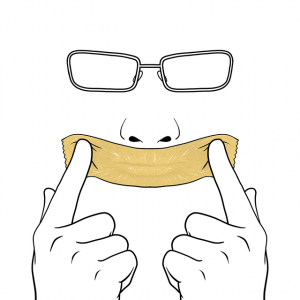Top 5 best tips how to pronounce Russian words correctly

Do you think you pronounce Russian words correctly? Do you know the top 5 best tips to sound like a native Russian speaker? The Russian language is not rocket science so you can master the pronunciation doing some practice every day.
Top 5 best tips how to pronounce Russian words correctly
To start with…
1. The first tip, which es extremely important, is not to read unstressed ‘o’ sound as ‘o’. However, remember that the unstressed ‘o’ should be pronounced like ‘a’. These are good examples:
Молокó – [ malakó ] – milk
Корóва – [ karóva ] – a cow
Хорошó – [ harashó ] – good
Плóхо – [plóha ] – bad
Дóрого – [ dóraga ] – it’s expensive
Дорóга – [ daróga ] – a road
Let’s talk about ‘e’ in Russian words!
2. Fortunately, there is also another rule for ‘e’. When ‘e’ stands before or after the stressed syllable, pronounce it as ‘и’ [ y ] / [ ee ]
Полетéли – [ politéli ] – flew
Бежáть – [ bijat’ ] – to run
Путешéствовать – [ putishéstvavat ] – to travel
Тебя́ – [ tibiá ] – you (I love you – я люблю тебя)
Compare:
Вéра – [ véra ] – faith
Верёвка – [ viriófka ] – a rope
What is the ‘silent letter’?
3. Well, another thing is that a student shouldn’t forget about the ‘silent letters‘ in Russian words. You should be careful not to pronounce them, as in English:
Fas\t\en
Of\t\en
De\b\t
Clim\b\
There is a good rule for that!

In the Russian language you will find the silent letters in these words:
Сер\д\це – [ sértse ] – heart
Со\л\це – [ sóntse ] – the sun
Be careful with these letter combinations in order to pronounce them in a right way.
For instance, if you have next letter combinations, you need to leave out some of the sound when you read the words.
when you have ‘стн’
Чéс\т\ный – [ chésnyi ] – honest together
Стрác\т\ный – [ strásnyi ] – passionate
when you have ‘вст’
Чу́\в\ство – [ chústva ] – feeling
Здрá\в\ствуйте – [ zdrástvuitye ] – hello
when you have ‘здн’ together
Прáз\д\ник – [ práznyk ] – holiday
Пóз\д\но – [ pózna ] – late
when you have ‘стл’ together
Счас\т\ли́вый – [ schaslívyi ] – happy
Жáлос\т\ливый – [ zhálaslivyi ] – compassionate
Hit the desk when you pronounce Russian words!
4. Yes! It’s true and it’s so helpful. If you stress the words in the right way in Russian you will sound like a Russian person. I know many of you know how to stress the words but this rule for those who cannot feel the difference between the stressed and unstressed syllables. To feel it you can hit the desk with you palm. This way you will learn how ‘to hit‘ the stressed syllable. One example of this is the word:
Монотóнный – monotonous
Another way to practise the stressed sounds is to pronounce the stressed syllables as you do but whispering them. You will feel how your tongue hits them while whispering.
Путешéствовать – to travel

Read the endings properly!
5. Don’t forget that we DO read ‘e’ at the end of the words when an English speaker will try to avoid pronouncing them. Read the endings clearly in the Russian language.
Episod’e’
Past’e’
Сообщéни’е’ – message
And it’s extremely necessary to pronounce the ‘e’ when you have a prepositional case so that a word would have the the right meaning, e.g.
о пóчт’е’ – about a post office
на рабóт’е’ – at work
In conclusion, many people don’t pay enough attention to the stress in the words or the correct pronunciation of the Russian vowels. On the one hand they learn, but on the other hand they do not sound well.The point I’m trying to make is that every student should try their best to reduce the mistakes which is not that hard if you use the right tips.
Author: Olya D., a Russian teacher
Being an English speaker, learning Russian is very challenging for me. Having taken your classes, which I enjoy tremendously, I find this article & this website to be extremely helpful reinforcing material covered in class. It is obvious you put in a lot of work to create a great website for learners of all levels:)
This is really useful Olya though I’m not sure my table appreciates being hit so much. LOL
Have you tried though? lol